DIY Fly Repellents for Outdoor Spaces – Short and Long Term Solutions
Imagine you’re enjoying a beautiful summer evening on your patio, only to be interrupted by the persistent buzz of flies. It’s a common frustration, but there’s good news: you can keep these pests at bay without resorting to harsh chemicals. Natural ingredients can effectively repel flies while being safe for both you and the environment.
Below, we will guide you through easy, practical DIY solutions to create a fly-free outdoor space. Let’s explore how to use everyday items like garlic, mint, lemongrass, and more to keep flies away and make your outdoor gatherings more enjoyable.
The Power of Garlic
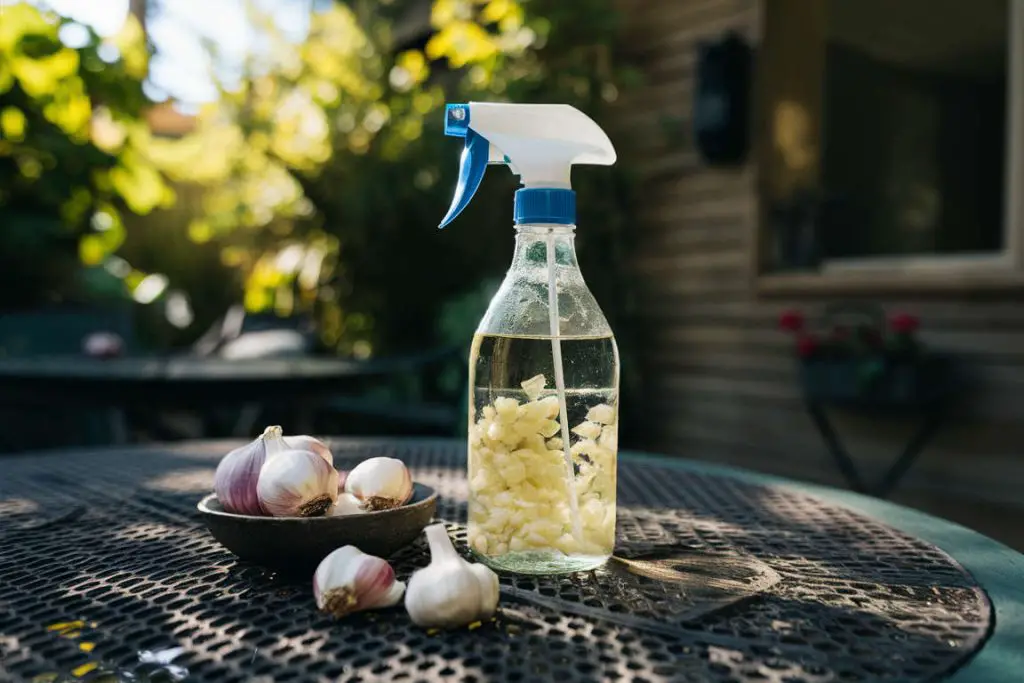
Garlic isn’t just for enhancing your favorite dishes; it can also help keep flies away. When garlic is crushed or burned, it releases compounds that flies find unpleasant. Making a garlic-based spray is simple and effective. Here’s how you can create your own:
- Crush several garlic cloves and mix them with water.
- Let the mixture sit for a few hours to enhance its potency.
- Strain the garlic out, and pour the liquid into a spray bottle.
Spraying this solution around your patio or outdoor seating areas can deter flies. Another method involves placing garlic cloves in strategic spots around your outdoor space. Not only does garlic repel flies, but it also adds a rustic touch to your garden.
Essential Oils: Nature’s Fragrant Deterrents
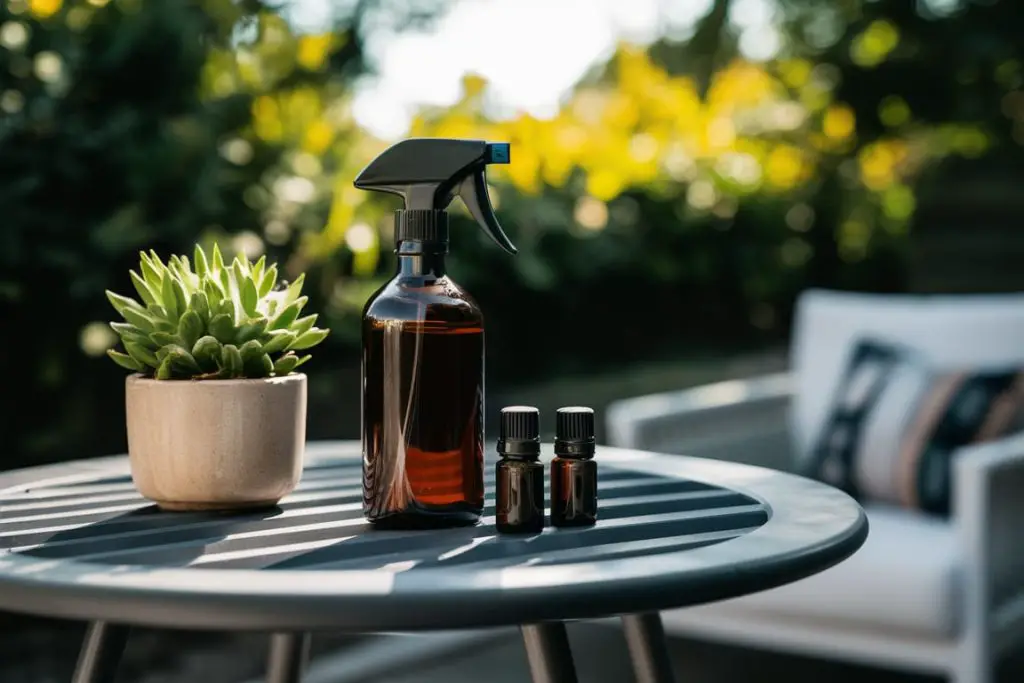
Essential oils are not only pleasant to our senses but can also effectively repel flies. Oils like lavender, eucalyptus, and peppermint are particularly potent. Here’s a simple way to create an essential oil fly repellent:
- Mix 10-15 drops of your chosen essential oil with water in a spray bottle.
- Shake well to ensure the oil is evenly distributed.
Spray this mixture around windows, doors, and outdoor seating areas. Essential oils not only repel flies but also leave a refreshing scent in your space. Small cotton balls soaked in essential oil and placed strategically can enhance the effect, adding a pleasant aroma to your garden.
Soap Bars: A Fresh and Effective Barrier
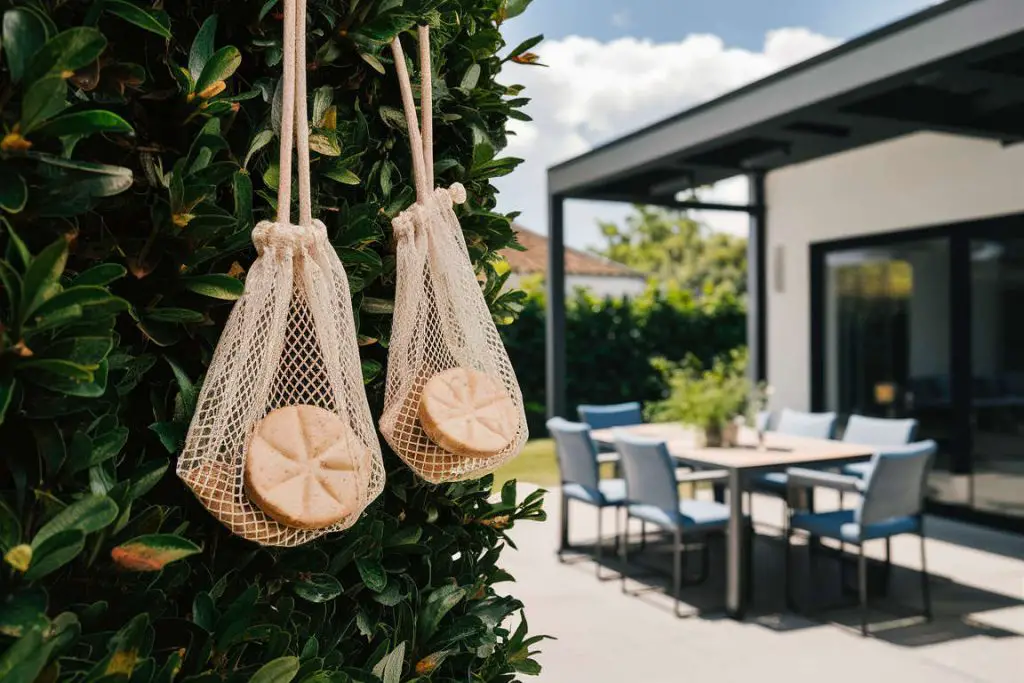
Essential oils can be expensive. A cheaper alternative would be to use soap bars, particularly those with strong fragrances like Irish Spring or citronella. These can serve as an effective fly deterrent because of these strong aromas. Their potent scent repels flies and leaves a pleasant aroma in your outdoor spaces. Here’s how to use soap bars to keep flies away:
- Cut the soap bars into small pieces.
- Place the pieces in breathable mesh bags or cloth sachets.
Hang these sachets around your patio, near doorways, or in seating areas. The strong scent of the soap acts as a barrier, keeping flies at a distance. For added effectiveness, you can also rub the soap directly on outdoor surfaces. Irish Spring’s fresh scent and citronella’s natural insect-repelling properties make these soap bars a practical and fragrant solution for fly control.
Apple Cider Vinegar: A Classic Solution
Apple cider vinegar is a popular natural fly repellent. Its strong scent attracts flies, but once they come into contact with it, they become trapped. To make an effective apple cider vinegar trap:
- Fill a jar halfway with apple cider vinegar.
- Add a few drops of dish soap to break the surface tension.
Cover the jar with plastic wrap, poking a few holes in it. Flies are drawn to the vinegar and get trapped inside. Place these jars around your outdoor areas to significantly reduce the fly population. The soap traps them, making it difficult for them to escape
Pine-Sol: A Versatile Cleaner and Repellent
Pine-Sol, a household cleaner known for its strong pine scent, can double as a fly repellent. Here’s a simple way to use Pine-Sol:
- Mix equal parts Pine-Sol and water in a spray bottle.
- Shake the bottle to combine the solution.
Spray this mixture around outdoor furniture, patios, and trash bins. The strong scent of Pine-Sol deters flies while leaving a fresh, clean aroma. Soaking a cloth in Pine-Sol and hanging it in problem areas can also help keep flies at bay.
Pennies in Water: A Surprising Trick
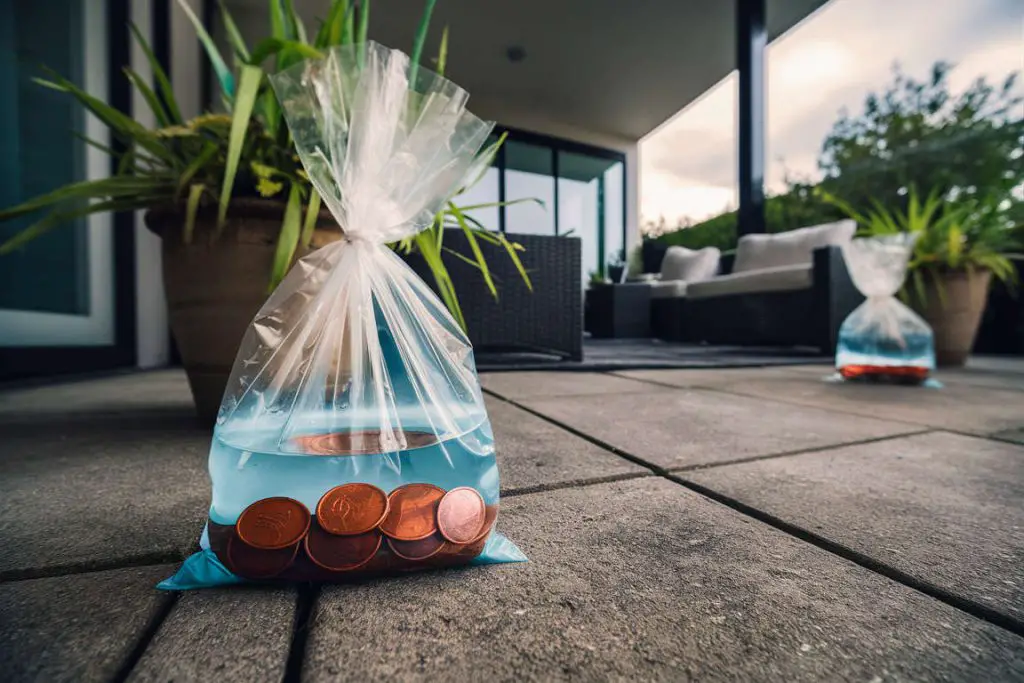
Pennies in water is an old trick that works surprisingly well to repel flies. The reflection of light off the water and pennies confuses and deters flies. Here’s how to set it up:
- Fill a clear, resealable plastic bag halfway with water.
- Add a few shiny pennies to the bag.
- Seal the bag and hang it near doors, windows, or outdoor seating areas.
The combination of light and copper from the pennies creates an optical illusion that flies avoid. This simple, inexpensive solution adds a unique touch to your outdoor space while keeping flies at bay.
Mint: A Refreshing Repellent
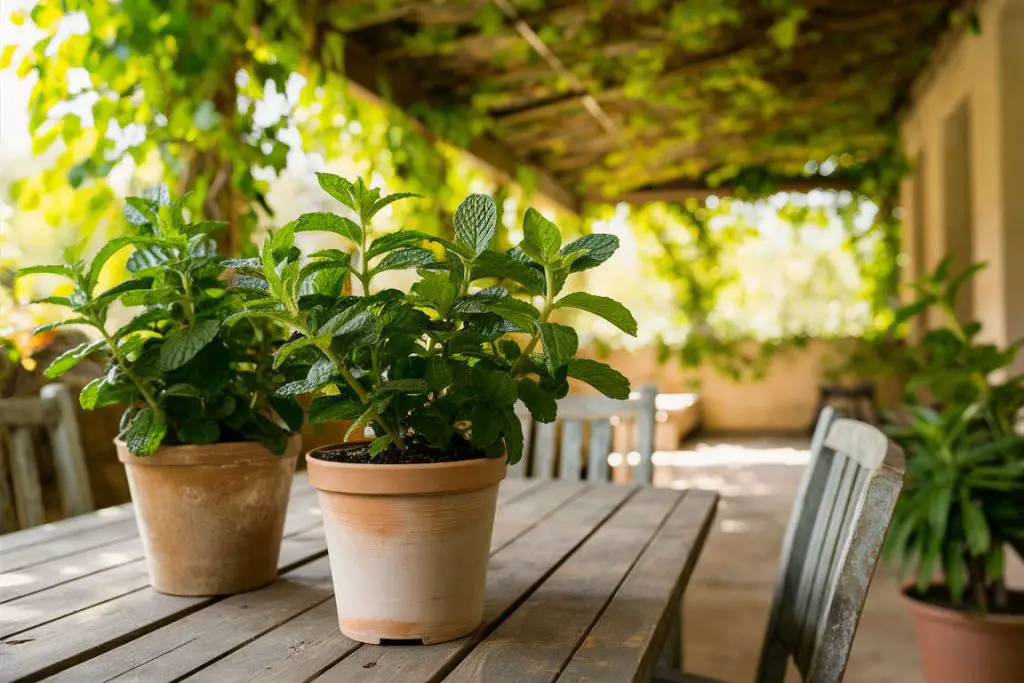
Mint is well-known for its refreshing scent, but it also serves as an effective fly repellent. Flies dislike the strong aroma, making mint a great addition to your outdoor spaces. Growing mint plants in pots or garden beds around your patio can create a natural barrier against flies. To maximize its repelling power, try the following DIY mint essential oil spray:
- Fill a spray bottle with water.
- Add a few drops of mint essential oil.
- Shake the bottle well to mix the solution.
Spray this mixture around your seating areas, doorways, and windows to keep flies at bay. Additionally, mint plants are easy to grow and maintain, adding both beauty and functionality to your garden. The combination of fresh mint leaves and the essential oil spray will help you enjoy a fly-free outdoor environment.
Lemongrass: A Natural Barrier
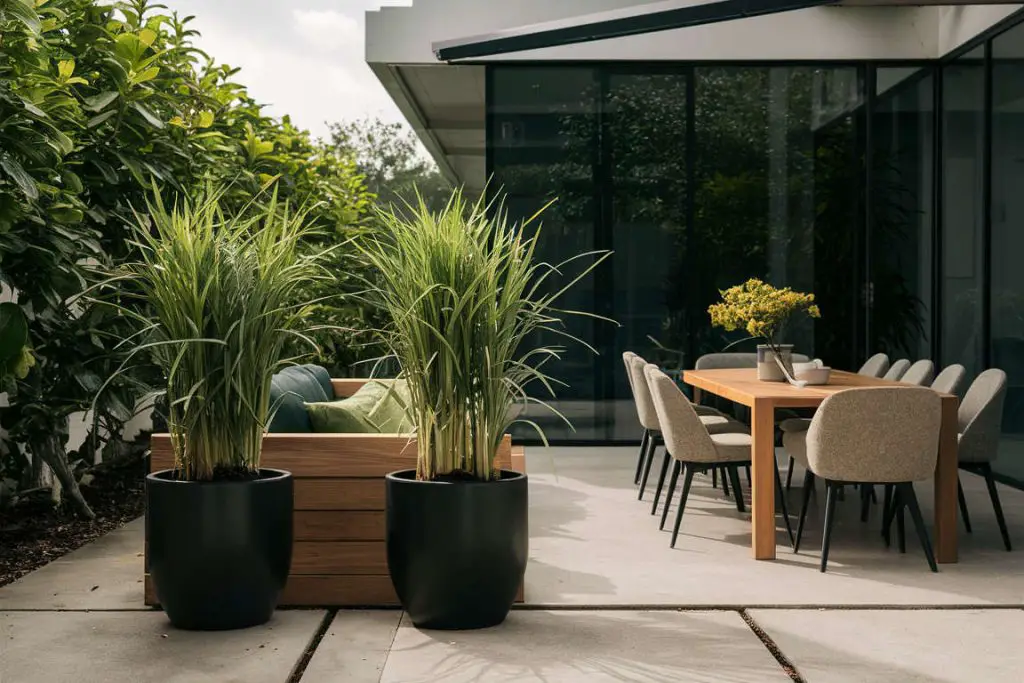
Lemongrass is not only a popular ingredient in many cuisines but also a powerful natural fly repellent. Its strong scent contains compounds that flies find unbearable. Planting lemongrass around your patio or outdoor seating areas can create an effective barrier. Here’s how to make a lemongrass essential oil spray:
- Combine water and a few drops of lemongrass essential oil in a spray bottle.
- Shake the mixture thoroughly.
Spray this solution around your outdoor space to keep flies away. In addition to its repellent properties, lemongrass adds a lovely, fresh aroma to your garden. It’s a great plant to have, providing both culinary benefits and an effective natural defense against flies.
Marigolds: Floral Fly Fighters
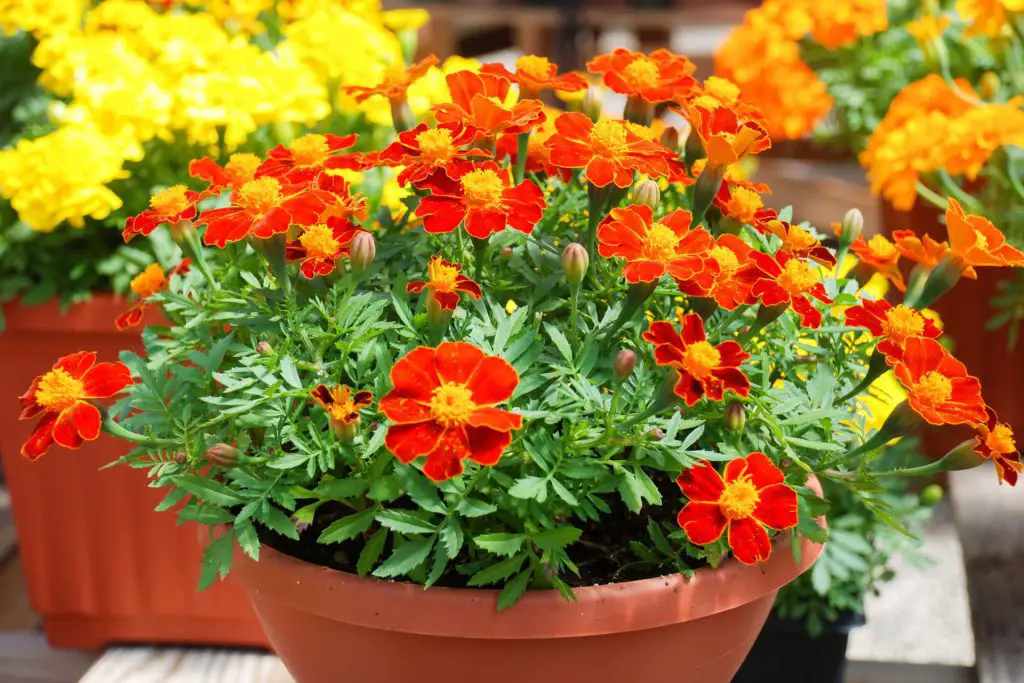
Marigolds are not only vibrant and beautiful but also excellent at repelling flies. The strong scent of these flowers acts as a natural deterrent, making them a perfect addition to your outdoor spaces. Planting marigolds around patios and seating areas can help keep flies at bay. Here are a few tips to get the most out of your marigold plants:
- Choose a sunny spot for planting, as marigolds thrive in bright light.
- Water them regularly, ensuring the soil remains moist but not waterlogged.
- Consider placing marigold pots around entryways and windows to create a barrier.
Incorporating marigolds into your garden not only adds a splash of color but also provides a practical solution to fly problems. The dual benefits of beauty and functionality make marigolds a must-have for any outdoor space.
Vinegar: An Everyday Solution
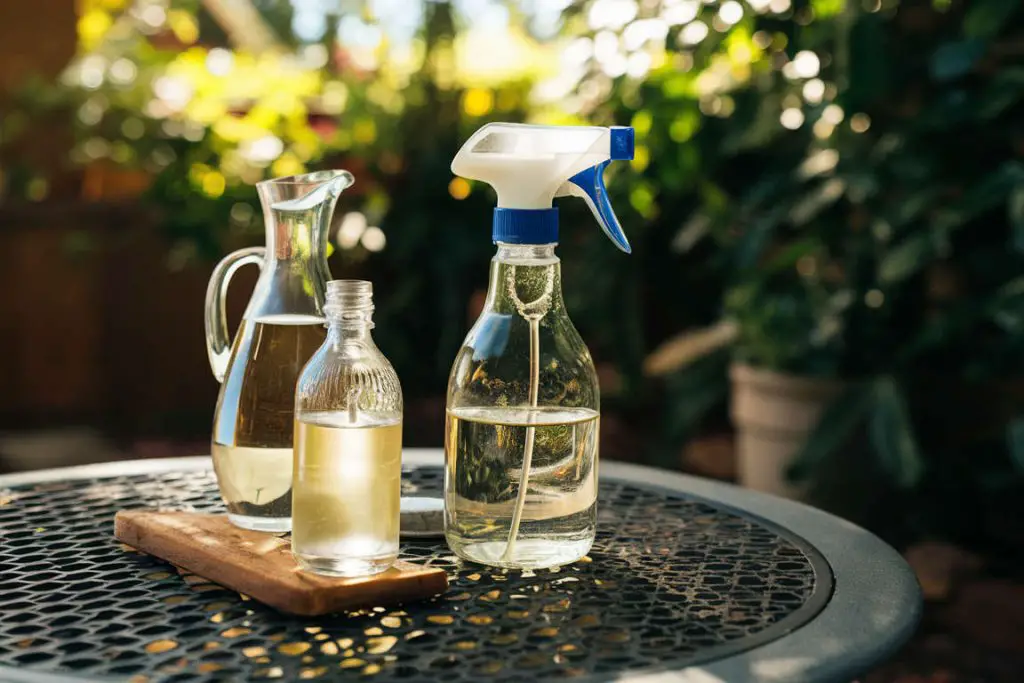
Vinegar is a household staple that can double as an effective fly repellent. The acidic properties of vinegar create a scent that flies find unpleasant. Making a vinegar spray is easy and cost-effective. Follow these steps to create your own fly deterrent:
- Mix equal parts water and white vinegar in a spray bottle.
- Add a few drops of dish soap to enhance the mixture’s effectiveness.
- Shake the bottle well to combine the ingredients.
Spray this solution around your outdoor areas, focusing on places where flies tend to gather. Vinegar’s strong smell will help deter flies, making your outdoor gatherings more enjoyable. Its availability and effectiveness make vinegar a go-to solution for keeping flies at bay.
Ammonia: A Potent Deterrent
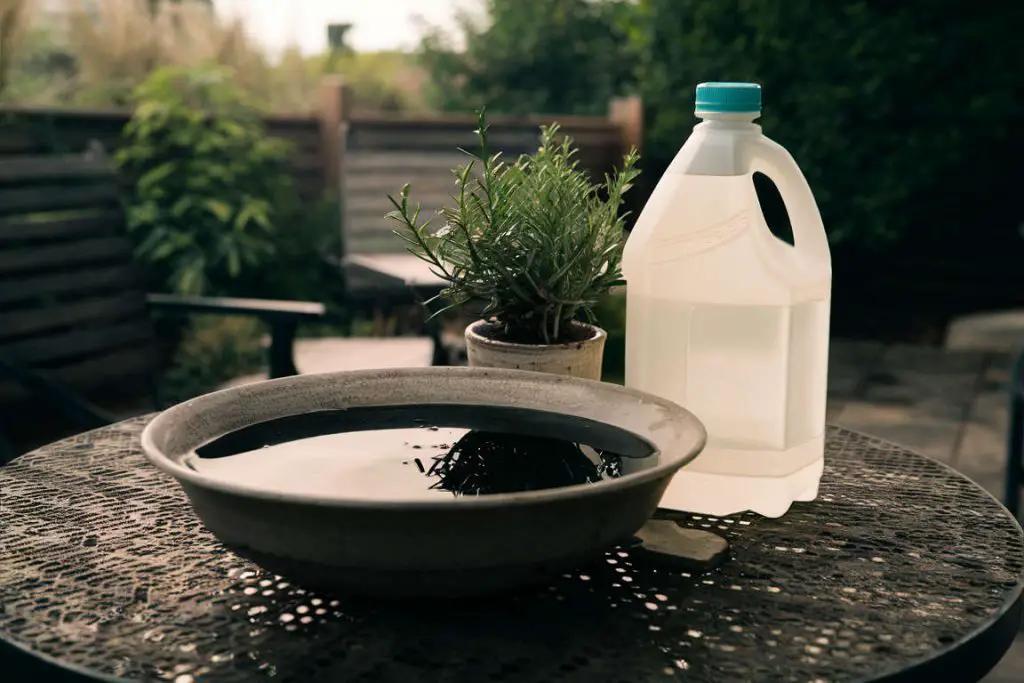
Ammonia’s strong odor makes it an effective fly repellent. Flies are naturally repelled by its pungent smell, making it a useful tool for keeping them away from outdoor spaces. To use ammonia safely and effectively, follow these tips:
- Pour a small amount of ammonia into a shallow bowl.
- Place the bowl in strategic locations around your patio or seating areas.
- Ensure the bowls are out of reach of children and pets to avoid accidental contact.
Regularly check and refresh the ammonia to maintain its effectiveness. The powerful scent will help create a fly-free zone, allowing you to enjoy your outdoor space without the constant annoyance of flies. Ammonia is a straightforward and potent solution for those looking to keep flies at bay.
Basil: Fragrant and Effective
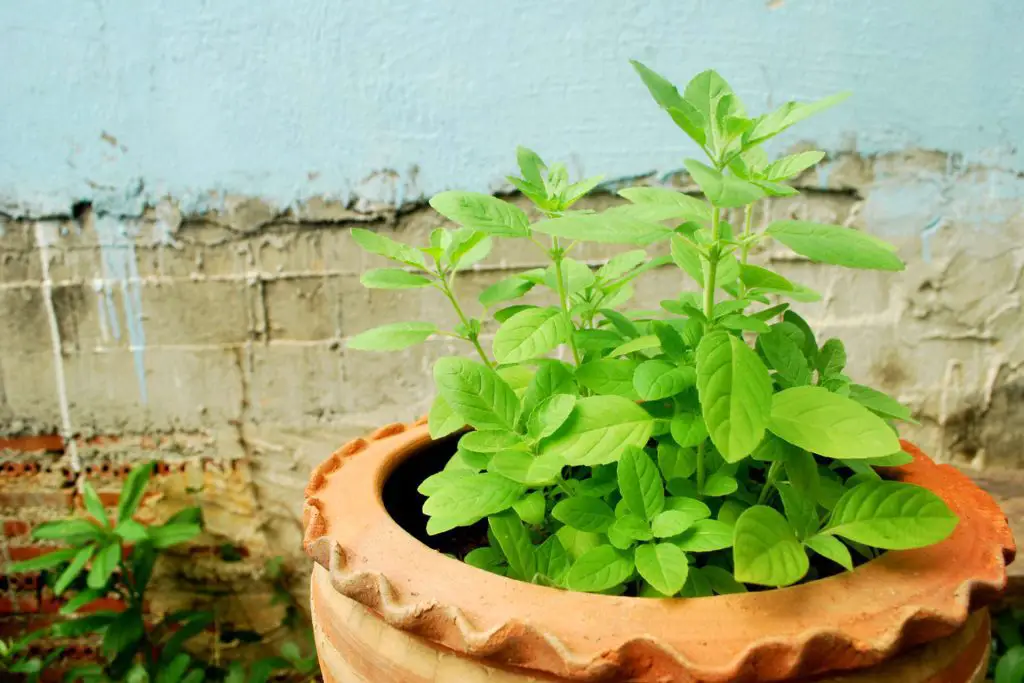
Basil is more than just a flavorful herb; it’s also an excellent natural fly repellent. The compounds in basil leaves interfere with flies’ ability to detect food and carbon dioxide. Growing basil in pots or garden beds near outdoor seating areas can help keep flies at bay. To make a basil-infused fly repellent spray, follow these steps:
- Boil a handful of fresh basil leaves in water.
- Let the mixture cool, then strain out the leaves.
- Pour the basil-infused water into a spray bottle.
Spray this solution around your outdoor space to deter flies. The pleasant aroma of basil not only repels flies but also enhances the ambiance of your garden. Incorporating basil into your outdoor areas provides both culinary benefits and an effective, natural fly repellent.
Lighted Candles and Heat: A Soothing Solution

Lighted candles, especially citronella candles, are a well-known method for repelling flies. The smoke and heat produced by candles, along with the scent of citronella, create an environment that flies find unpleasant. Here’s how to use candles and other essential oils effectively:
- Place citronella candles around your patio or seating area. Ensure they are positioned safely to avoid fire hazards.
- Consider using candles infused with other essential oils like lavender, eucalyptus, or peppermint, which also repel flies.
- Light the candles a few minutes before you plan to use the outdoor space to allow the scent and smoke to build up.
Smoke and heat from the candles add an extra layer of protection by creating a barrier that flies avoid. Combining different types of candles and essential oils can enhance the repellent effect, making your outdoor experience more enjoyable. However, it is essential to note that the effectiveness of candles in repelling flies can vary depending on the type of candle, the strength of the scent, and the number of flies present.
Long-Term Solutions: Strategic Planting
Creating a fly-free outdoor space involves more than temporary measures. Strategically planting certain types of plants can provide long-term protection. Integrating these plants into areas where you sit or eat can naturally repel flies over time. We have already mentioned several of the most commonly used plants ,such as marigolds, but there are other plants that have good fly repellent properties that can be strategically planted in areas of the garden or backyard where you would sit, eat or congregate:
- Lavender: Known for its calming scent, lavender also deters flies. Planting lavender near seating areas or along pathways can keep flies at bay while adding beauty and fragrance to your garden.
- Rosemary: This versatile herb is not only useful in the kitchen but also effective in repelling flies. Grow rosemary in pots or garden beds near dining areas to benefit from its strong aroma.
- Bay Leaf: The aromatic leaves of the bay laurel tree can help keep flies away. Plant bay trees in large pots or in the ground around outdoor seating areas.
- Tansy: Often overlooked, tansy has bright yellow flowers and a scent that flies dislike. Position tansy plants near patios or outdoor eating spaces to reduce fly activity.
These are just some of the more common plants that are used. If theses don’t suit there are other plants that to deter flies that might be a better fit for your aesthetics.
Regularly maintaining these plants ensures they stay healthy and effective in repelling flies. Incorporating a variety of these fly-repellent plants into your garden design not only adds visual interest but also provides a natural, long-term solution for keeping flies away.
Wrapping Up Your Fly-Free Haven
Transforming your outdoor space into a fly-free haven is easier than you might think. Using natural ingredients like garlic, mint, lemongrass, and marigolds, combined with everyday items like vinegar and ammonia, can effectively keep flies away. Planting fly-repellent herbs and flowers around your seating and dining areas offers long-term protection and enhances the beauty of your garden.
Experimenting with different combinations of these solutions will help you find what works best for your space. Regularly refreshing sprays and maintaining plants will ensure ongoing effectiveness. Enjoy a more pleasant outdoor experience, free from the constant buzz of flies. Share your success stories and tips with fellow gardeners, and relish in your peaceful, fly-free sanctuary.
